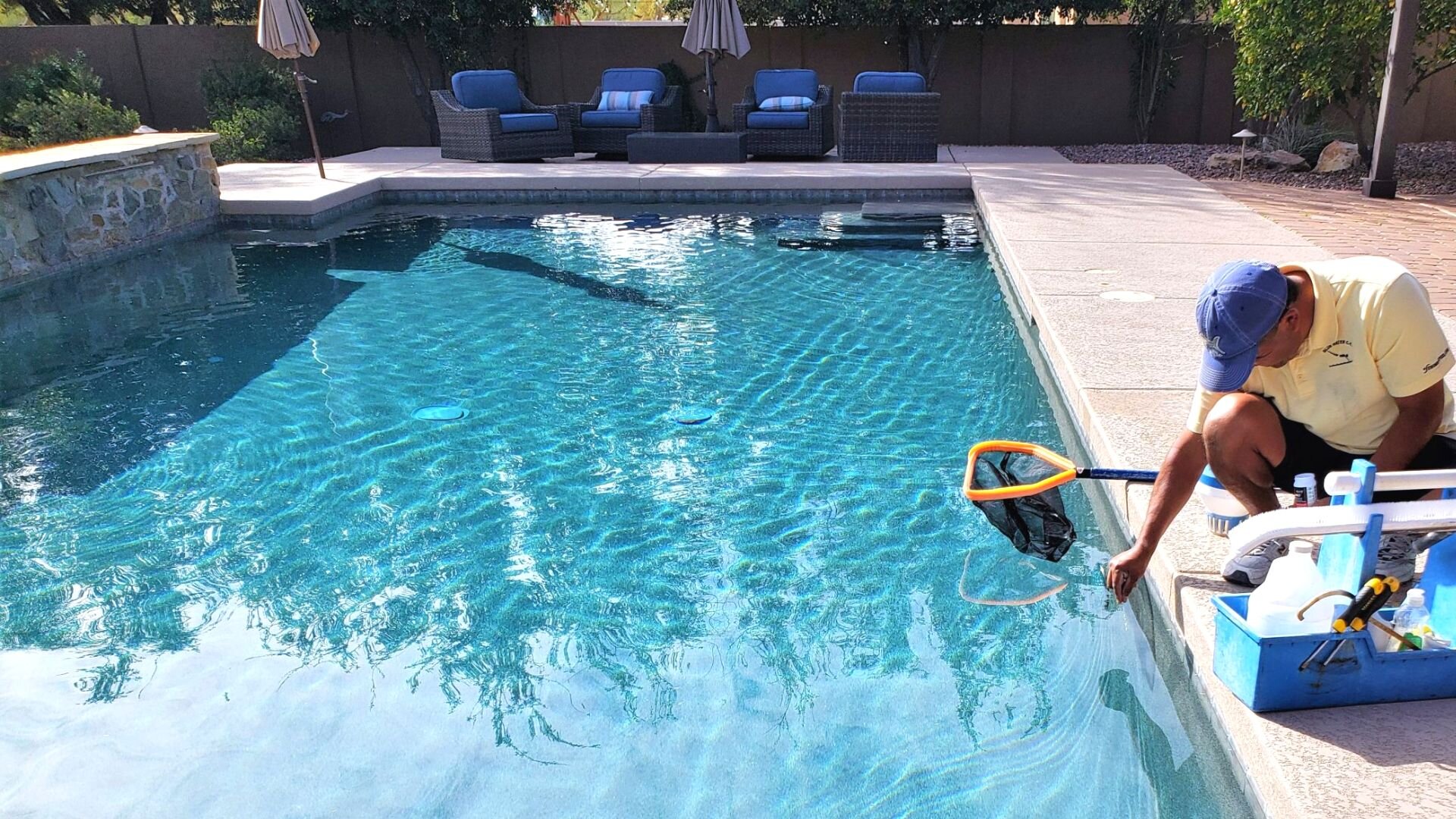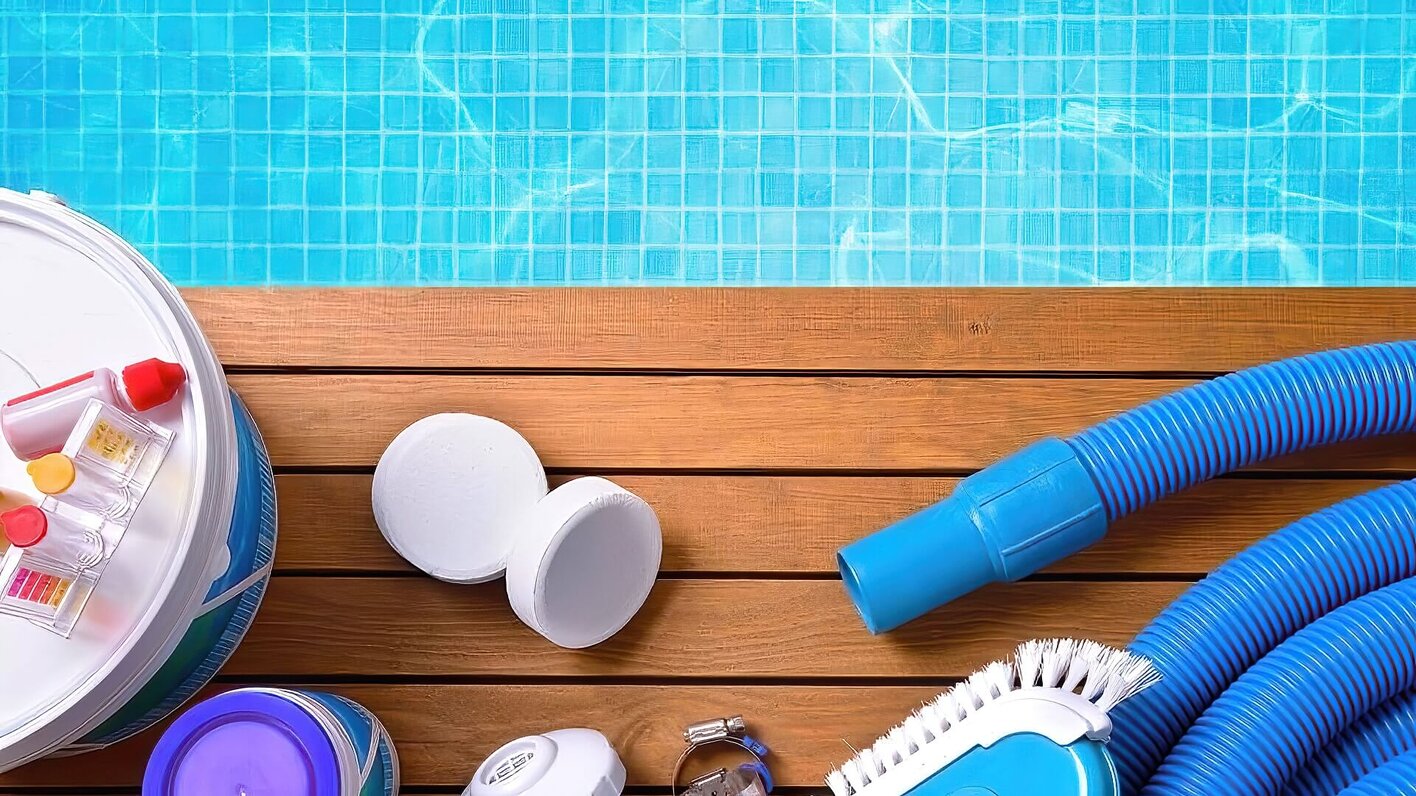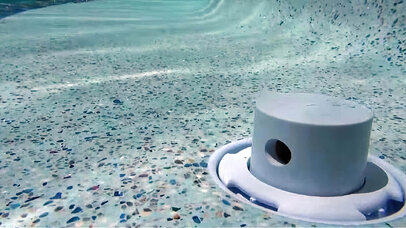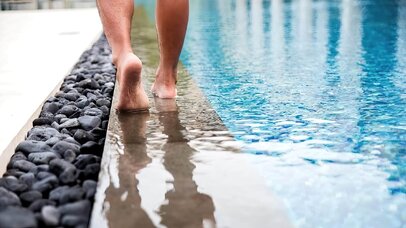Are you considering getting a pool but have no idea how to clean one? Pool chemistry is essential for every pool owner. Don’t worry; with some information, maintaining your pool’s water quality is an absolute breeze.
Maintaining a crystal-clear swimming pool is a labour of love. Pool chemicals can help keep your water clean and clear, reduce the growth of bacteria, and balance the water’s pH levels. Understanding the different chemicals ensures your pool is healthy and safe to enjoy all summer.
So, without wasting any more time - let’s look at the different pool chemicals and how they work with your swimming pool!
Why Are Pool Cleaning Chemicals Important?

Pool chemical cleaning ensures a safe and healthy swimming pool experience. Proper chemical balance ensures the water is safe for swimming and the pool remains clean. Pool chemicals are designed to reduce the growth of bacteria and algae, reduce the formation of cloudy water, and maintain the pH and alkalinity levels of the pool water.
The right amount of chemicals in the pool is critical to keeping the water clean and safe for swimming. Pool owners need to understand the importance of maintaining the proper chemical balance in their pools. This can be done by regularly testing the chlorine levels and using liquid test kits.
Regular testing and maintaining the proper chemical balance in the pool will help prevent chlorine-like pool smells and cloudy water and keep the pool safe for swimming.
What Filtration Equipment Do You Need
First, let’s talk about what filtration equipment you will need. These do not replace pool cleaning chemicals but are a great supplement.
All the pools we build come complete with the filtration equipment you need to get the debris out of your pool. We also provide optional extras such as robotic cleaners and self-cleaning pools at discounted rates for our fantastic customers. Getting these through us means you can save tons of money on expensive products.
We only use the very best cleaning and filtration equipment there is. That’s why we have partnered with Hayward; we can offer you the best pool-cleaning equipment. To ensure pool chemistry is correct, you must clean your filter regularly.
Sanitising Your Swimming Pool Water

The first thing you will need to start doing for outdoor pool maintenance is sanitising your water to make it entirely safe for you and your family to swim in. This ensures you will not pick up any nasty bugs that may have gotten into the water.
Here’s what you can use to sanitise and disinfect pools:
- Salt
- Minerals
- Chlorine
Salt
That’s right, salt! Chlorine is the most common thing you will use to sanitise swimming pool water, and you don’t necessarily need anything else. However, you can use a salt-chlorine generator to turn regular salt into chlorine, which many people like because salt is cheap and easy to purchase.
Minerals
You can use a mineral system to add copper and silver minerals to your swimming pool’s water. These minerals sanitise water but do it much more slowly than chlorine.
You will still need to use small amounts of chlorine and minerals to ensure complete sanitisation. That’s why it’s not a total replacement for chlorine, but it means you can use much less of it.
Chlorine
Finally, let’s talk about chlorine. This is what most people use to sanitise their pool water. The chlorine range required for sanitisation is 1 to 3 ppm. It’s cheap and fantastic at eliminating both algae and bacteria.
You can buy chlorine in powder or tablets, making it easy to add to your pool. Remember to wait before swimming if you are shocking your pool with chlorine.
Keeping Your Water Balanced
You need balanced water in your pool to prevent algae growth and kill bacteria. What does that mean? You don’t want your water to be too complicated, nor do you want it to be too soft. 'Hard water refers to the number of minerals occurring in the water, such as calcium chloride and other specialty chemicals.
Soft water, on the other hand, does not have enough minerals. The pH must be kept at a certain level, between 7.4 and 7.6, to maintain the water’s pH level and balance. On the pH scale, this amount resides just slightly above neutral levels. What components are used to maintain this balance in swimming pools?
Calcium Hardness Levels
Calcium chloride and other minerals in the water in your pool are essential. Without calcium, your pool can start to erode at the edges, which causes calcification on the sides and the floor. The best range is between 175 and 300 ppm. Overdoing the calcium levels has issues, such as scale, so keep it between these measurements.
Alkalinity Levels
these should stay between 100 and 150 ppm. Alkalinity helps keep your pH levels where they should be, as alkalinity can absorb elements coming into your pool water, which could affect the pH levels. These can fluctuate dramatically, so you should always have a supply for your pool in case you need it suddenly.
pH levels
These should ideally stay between 7.4 and 7.6. Lower pH is somewhat acidic, and your pool water would burn you. Higher, and your pool would dry out your skin.
You can get test strips or at-home test kits to test whether you have these chemicals in the right balance. Then you will know right away if the balance is off, and you need to do something about it, like adding shock treatments to kill bacteria and prevent algae growth from organic matter. The best practice is to test your pool water weekly to see if you need to adjust the balance.
Chemicals Levels Required For Balanced Water

If these tests show that your balance is out of order, you’ll need pool chemicals. To keep all of the elements in balance, here are the substances you can use:
- Alkalinity Increaser
- pH Reducer
- pH Increaser
The pH reducer lowers both the pH and alkalinity levels, hence why you won’t find an alkalinity reducer anywhere. Companies don’t produce it because it is unnecessary.
How To Clean Existing Issues With Your Swimming Pool
What else do you need to ensure your pool remains clean and safe?
For most people, sanitising and balancing products are enough. However, there are other products you might need in certain situations or if you want to use them. Here are the situations and what you may need to rectify them:
Scale
If you, unfortunately, already have the scale in your pool or along the waterline, you will need a way of removing it. That’s where scale remover can come into play.
Complex water-containing substances like iron and copper cause the scale. A stain or scale remover can get rid of these for you.
Low Chlorine
If you find that your chlorine dips low, this increases your risk of getting in your pool. In this case, you may want to use an algaecide.
This can prevent algae from appearing in your pool. While chlorine is a fantastic algae killer, you can use algaecide as a backup when your chlorine gets low.
If you already see algae, using chlorine to eliminate it is better than algaecide.
Fresh Water
If you’re adding fresh water to your pool, you might need a water stabiliser known as cyanuric acid. Adding this can stop your chlorine from being burnt away by the sun’s UV light and rays.
It can help your chlorine last longer. Otherwise, it may quickly disappear from freshwater.
Do I Need To Shock My Swimming Pool?
Pool shock and pool cleaning chemicals are essential to having an enjoyable pool. Pool shock is a concentrated chlorine product that helps break down organic contaminants and algae growth on pool surfaces and in the water.
Chlorine tablets and liquid chlorine keep the pool pH balanced and ensure the water is clean and safe. Using pool chemicals is even more critical for indoor pools since the pool is not exposed to natural bacteria-killing elements such as UV rays. Pool shock and pool cleaning chemicals are necessary to keep your pool clean and enjoyable.
The Perfect Pool Cleaning Solution: Unlocking the Benefits of Cleaning Chemicals
Maintaining a crystal-clear swimming pool is a labour of love. While it may require some work, having a sparkling pool is worth it! A critical part of pool maintenance is knowing the different pool chemicals and how to use them.
For more information on pool cleaning chemicals, contact our team at The Pool Co today! Our experienced pool builders can assist you with getting your pool chemistry perfect and keeping your pool clean all year round.
That was our guide on swimming pool chemicals. We hope you learned something. Check out our guide on switching to a saltwater swimming pool for another exciting read!



